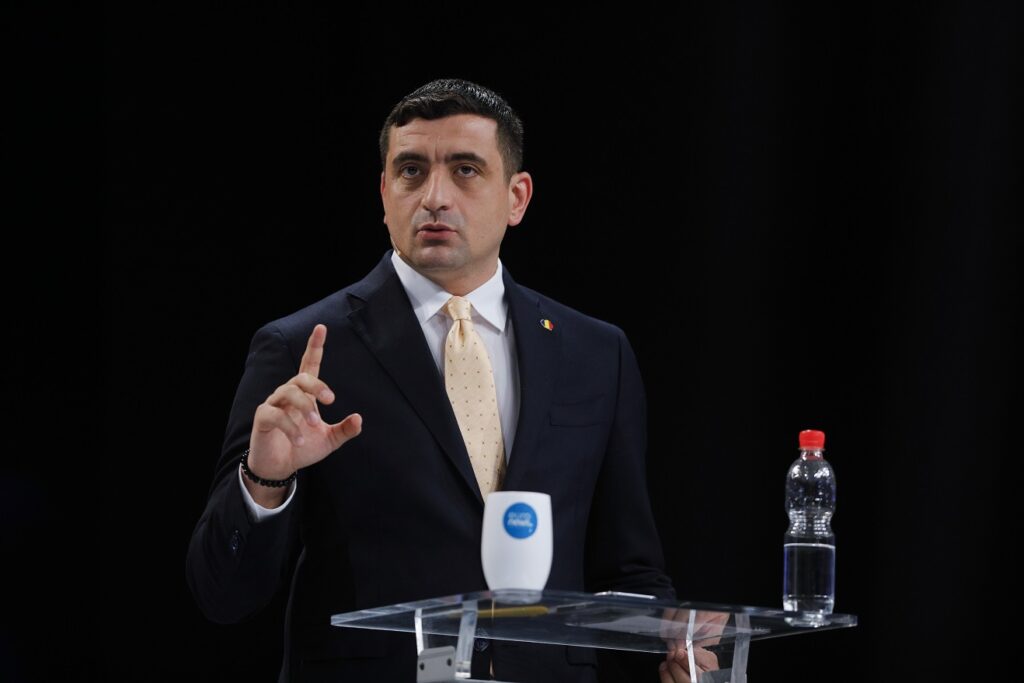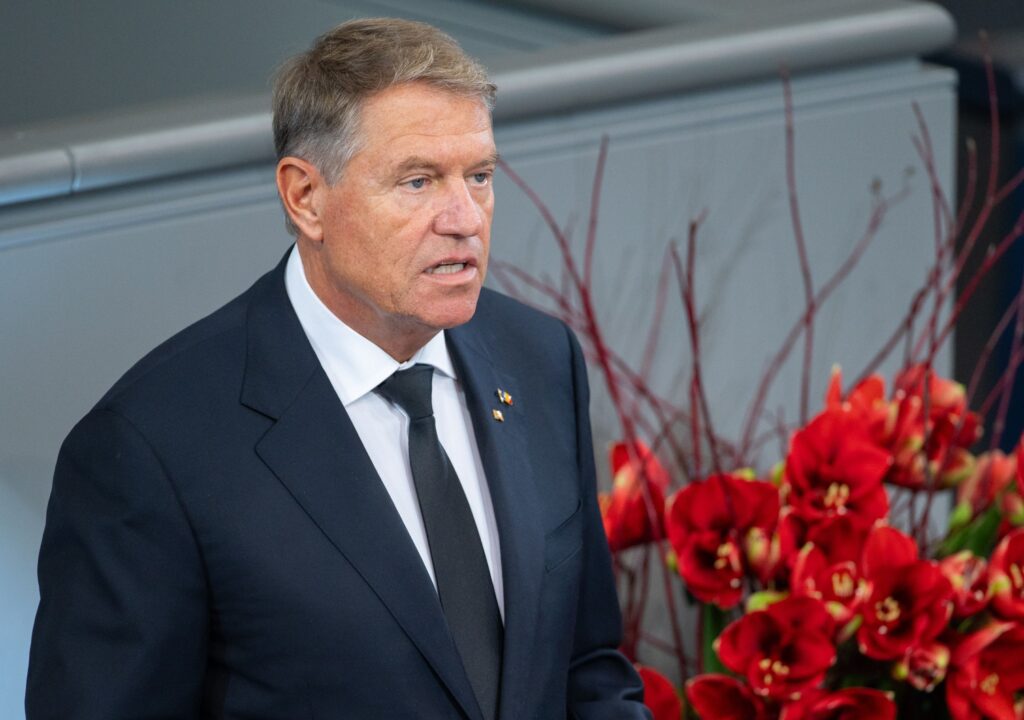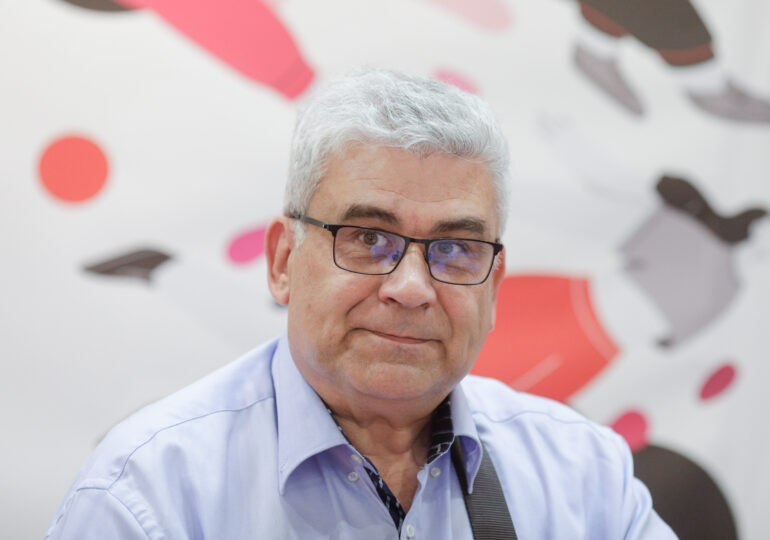Former foreign minister Teodor Baconschi draws attention, in an interview on Russian interference in Romania, that the Romanian society is in a fragile situation. In his opinion, pro-Russian networks have managed to fracture internal cohesion and undermine trust in institutions, while authorities have remained passive.
Important quotes:
„The thief cries thief, because all solid journalistic investigations have shown that George Simion’s party is a creation of retired officers’ circles from the Romanian secret services.”
„Russia has gained the reality of a fragmented society that can only regain its cohesion through truth.”
"People with views close to Moscow have maintained their influence in the system, blocking Romania's westernization."
"If from Cotroceni, the head of the CSAT does not have a clear direction, the system does as it pleases and waits to see who wins."
"We have a window of a few years to strengthen our defense and internal cohesion. It is a chance that Romania cannot afford to miss."
George Simion is manipulated from the shadows
Teodor Baconschi has no doubts about the role of AUR leader, George Simion. "I am convinced that Mr. Simion is manipulated from the shadows, both from Romania and abroad. It is no coincidence that he lost the trial in Chisinau that demonstrated links to the GRU, the Russian military intelligence service," says the former minister.
He also recalls Simion's ban from entering the Republic of Moldova and Ukraine: "A situation quite rare for a political leader. This shows how serious the suspicions are regarding his activities."
In addition, Baconschi criticizes Simion's foreign tours, which he considers mere image operations paid for with public money: "He puts on his MAGA hat, copies Trumpist rhetoric, and denigrates Romania. He goes abroad and says that Romania is not a democracy, that elections are rigged. In fact, the thief cries thief."

A party created in obscure laboratories
For Baconschi, AUR is not a spontaneous phenomenon but the result of a well-orchestrated construction. "All solid journalistic investigations have shown that George Simion's party is a creation of retired officers' circles from the Romanian secret services. All this sovereigntism, extreme nationalism, coincides with the Kremlin's interest in creating social disorder and distrust in institutions," he emphasizes.
Furthermore, Baconschi believes that justice has not done enough to investigate the sources of funding for these organizations: "The Romanian state has not managed to reach the funding sources of these extremist movements. Justice is at a standstill."
Russia has achieved tensions in a fragmented society
Although the Russia-backed candidate did not win the presidency, Baconschi believes that Moscow has achieved a significant victory: "Russia has won because, against the backdrop of legitimate disappointment of many Romanians with the political class, it has obtained the reality of a fragmented society. Romania can only regain its cohesion through truth and by breaking out of this infernal propaganda cycle."
Nicușor Dan is still seen as a guarantee: "He shows Romanians and Western partners that Romania will not deviate from its European and Euro-Atlantic destiny. But behind the scenes, a lot of trash has accumulated that needs to be swept away."
The post-communist legacy
Teodor Baconschi points out that current vulnerabilities have their roots in the 1990s. "Ion Iliescu signed a friendship treaty with the USSR, which committed Romania not to join NATO without Moscow's approval. Fortunately, it was not ratified following the dissolution of the Soviet Union, but it shows the mentality of the time," he explains.
The former president strengthened Moscow's influence through strategic appointments: "He brought back Patriarch Teoctist to lead the Church and appointed Virgil Măgureanu and Mihai Caraman to lead the intelligence services, the latter being decorated by the KGB. During those years, people with views close to Moscow were maintained in what we call the system."
Even though some officers were later trained within NATO, reservists remained active: "They considered Romania's westernization a loss and thought in Putin's terms. They awaited revenge, and the stars aligned with Trump's return."
The church and propaganda: unexpected allies
Baconschi describes how pro-Russian networks used internal resources: "These people used a part of the Romanian Orthodox Church, the money collected in the last 20 years, and Putin's discourse to change Romania's European path. A lot of money was invested, media complicity was created, and social networks were infected."
In Baconschi's opinion, Romania was almost "served on a platter to the Russians," witnesses to a geopolitical diversion experiment.
The passivity of Klaus Iohannis
A large part of the responsibility, according to Baconschi, falls on former President Klaus Iohannis. "He had other priorities, was completely boxed in by the services, and was never interested in neighborhood policy. Foreign policy was reduced to his comfortable travels," he says.
Furthermore, Iohannis allowed "a kind of dynamic balance" within the system, leading to a lack of reaction to Russian propaganda. "The system does as it pleases when a clear direction does not come from the Cotroceni Palace. It waits to see who wins. If Simion had won, he would have applauded him just as they applauded Nicușor Dan."

Pro-Russian networks: fake news and destabilization
Baconschi explains how these networks operate concretely: "We are not talking about individual opinions, but organized, funded networks. They have created neo-Legionnaire organizations, media platforms, thousands of fake accounts. They promote nostalgia for Ceaușescu, the apology of Russian imperialism, and infect entire social strata."
An example: the false news that Romania was going to send 250,000 soldiers to Ukraine "generated panic in the diaspora and had economic effects, discouraging people from returning to the country. This is just one example of the political, social, and economic impact of propaganda."
The weakness of authorities and the exploitation of fear
Asked why there were no internal defense mechanisms, Baconschi responds: "Because Iohannis, in his last term, lost his legitimacy. He was hated by the population and despised by the system. At the same time, Russian propaganda exploited the fear of Romanians."
This worked perversely: "The more we detest the Russians, the more we fear them. A fatalism was created that paralyzed society's reaction. Instead of clearly communicating why Ukraine should be supported and what NATO's role is, the authorities remained silent."
Russia is an adversary
For the future, Baconschi says that the first step has already been taken by President Nicușor Dan. "He said at the B9 summit in Vilnius that Russia is an adversary. It is a good start. Romania must clearly assume its NATO membership status and develop its defensive capabilities."
Furthermore, the former Foreign Minister calls for firm actions against pro-Russian networks: "It is not about individual freedom of opinion, but about organized groups that undermine democracy. They need to be dismantled."
Baconschi remains optimistic: "I am convinced that the United States will not withdraw from NATO and that European illusions regarding an understanding with Russia have been shattered. We have a window of a few years to strengthen our defense and internal cohesion. It is a chance that Romania cannot afford to miss."

